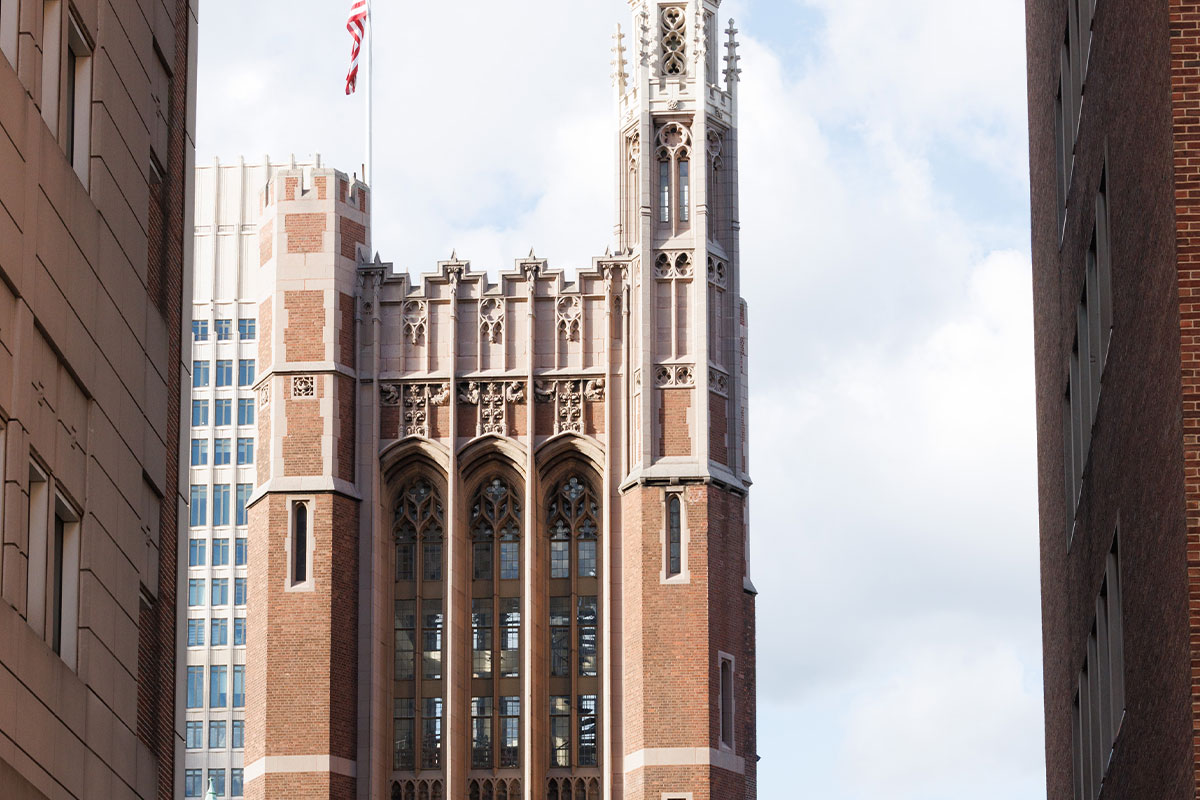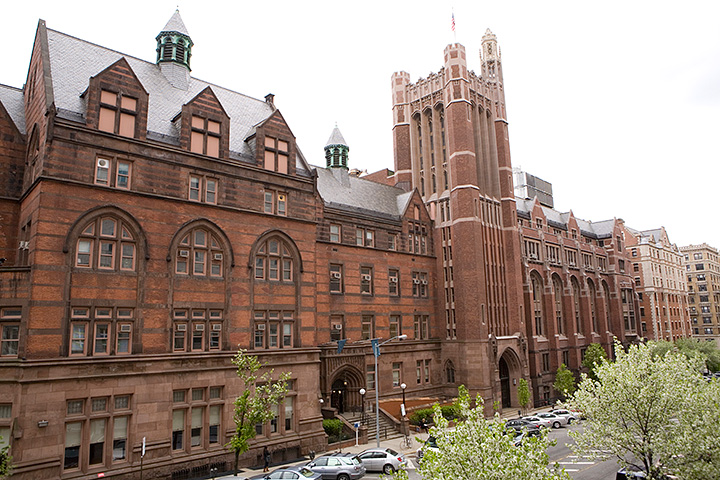
Where True Change Begins.
Our Mission
To empower committed learners and leaders to build a smarter, healthier, more just and equitable world through multidisciplinary knowledge creation, policy engagement, and practice innovations across education, psychology, and health.
About Teachers College
Creating a Smarter, Healthier & More Equitable World
Our name notwithstanding, Teachers College was founded on the proposition that education alone can’t correct our society’s inequalities — that to maximize the life chances of all people, we must also support poorer communities’ physical and nutritional health and psychological wellbeing. Thus, fields such as education psychology, nursing education, nutrition education, special education, conflict resolution and spirituality and education were created at TC, and for more than a century we have prepared psychologists, nutritionists, health educators, speech pathologists and other professionals, as well as teachers and school leaders.
Today, more than a third of our tenure track faculty are psychologists and health educators, and we continue to take a multidisciplinary approach, combining our strengths across fields to tackle the world’s most challenging problems. We offer more than 100 programs in our four core areas of expertise — education, health, psychology and leadership — and conduct research on topics that range from the impact of poverty on the brain to the legal basis for a Constitutional right to education; from hip-hop pedagogy to the revival of Inca languages in Latin American schools; from the study of motherhood as a developmental stage to the exploration of resilience in military veterans; from the impact of microaggressions on mental and physical wellbeing to language development in children on the autism spectrum; and so much more.
When we speak of education, we mean education writ large — the study of how people learn, and how they should be taught, in all fields. And that, ultimately, is why we continue to proudly call ourselves…Teachers College.
Our Guiding Values
Teachers College is led by guiding values that reflect our history, our present contexts and our vision for TC, and its members.
Care and Compassion
We recognize the humanity in each other and seek to make TC a place where all members feel cared for, sustained, and nourished as part of a community.
Purpose and Passion
We act to improve human flourishing and the public good.
Agency and Growth
Our purpose and passion pursue the highest forms of knowing, doing and being.
Critical Openness
We recognize that effective learning combines critical thinking and adaptability to new ideas, perspectives, and information. We question assumptions, engage in thoughtful analysis, and integrate diverse viewpoints and knowledge sources.
Institutionalize a Culture That Supports Our Community
Our many identities, languages and experiences are integral to our commitment to excellence; we learn from and seek to leverage our differences to ensure full participation by all.
Creativity
We learn through experimentation, play and messiness; we believe in invitations and provocations to revise, engage and innovate; to engage in hospitable imagination.
Humanity & Humility
We are all co-learners and co-creators of knowledge. Learning is a recursive process and to learn, we must remain critically open.
Through this presidential priority, our researchers, scholars and students are collaborating with each other, communities and leaders to solve some of the most pressing issues of our time across education, health and psychology.
At A Glance
Innovation
The Place for Visionary Thinkers
Since our founding in the late 19th Century, Teachers College has drawn together visionaries who aspire to make the world a better place for all. Today our alumni network is 90,000 strong. These innovators span the globe, leading in every field at every level. As a student at TC, you will be inspired — and prepared — to follow their lead.
Read our Annual Report to see our faculty and students making an impact at TC and beyond.
History
The Birthplace of Big Ideas
Teachers College started in 1880 when philanthropist, Grace Dodge, created a school in Greenwich Village to teach sewing, cooking, and other practical arts to underserved immigrant women. Through her work, Dodge had realized that a new kind of pedagogy was in order—teaching that reflected an understanding of learners’ backgrounds and of how to present material in relevant, meaningful ways.
By 1887, with the help of the Columbia University philosopher Nicholas Murray Butler, and with a site at West 120th Street donated by the industrialist George Vanderbilt, Dodge’s school had evolved into an entirely new kind of school devoted to teacher education.
Leadership
Trustees
College Leadership
Department Chairs
Faculty Executive Committee
President's Advisory Council
Alumni Council
Discover Our Community
Strengthening Families, Schools, & Communities








